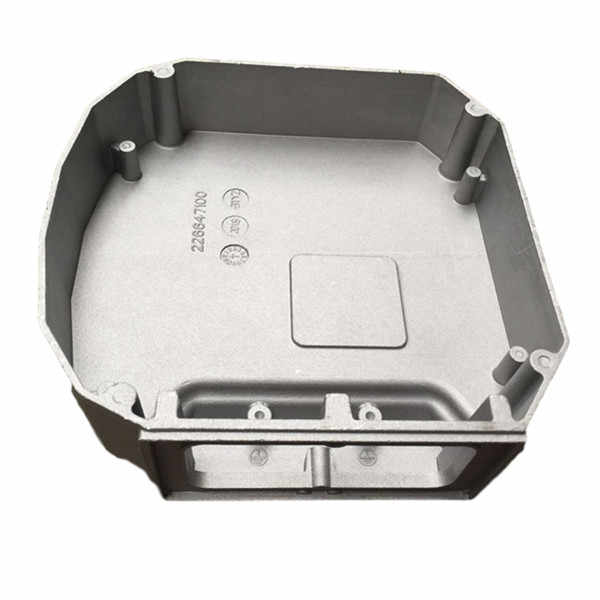Some Known Incorrect Statements About Alcast Company
Some Known Incorrect Statements About Alcast Company
Blog Article
The Ultimate Guide To Alcast Company
Table of ContentsSome Ideas on Alcast Company You Need To KnowAlcast Company Fundamentals ExplainedThe Definitive Guide for Alcast CompanyThe 7-Minute Rule for Alcast Company7 Easy Facts About Alcast Company DescribedTop Guidelines Of Alcast Company
The refined difference exists in the chemical content. Chemical Comparison of Cast Aluminum Alloys Silicon promotes castability by lowering the alloy's melting temperature level and enhancing fluidness throughout spreading. It plays a crucial function in allowing intricate mold and mildews to be filled up properly. Furthermore, silicon contributes to the alloy's toughness and use resistance, making it valuable in applications where resilience is important, such as automobile parts and engine components.It likewise enhances the machinability of the alloy, making it easier to refine into completed products. In this method, iron contributes to the general workability of aluminum alloys.
Manganese adds to the stamina of aluminum alloys and enhances workability (Aluminum Casting). It is typically made use of in functioned light weight aluminum items like sheets, extrusions, and profiles. The presence of manganese aids in the alloy's formability and resistance to cracking throughout fabrication processes. Magnesium is a lightweight aspect that supplies stamina and influence resistance to aluminum alloys.
The 6-Second Trick For Alcast Company
It enables the manufacturing of lightweight elements with excellent mechanical residential or commercial properties. Zinc boosts the castability of light weight aluminum alloys and aids regulate the solidification process during casting. It boosts the alloy's strength and hardness. It is usually found in applications where elaborate shapes and fine information are required, such as ornamental spreadings and specific vehicle components.

The primary thermal conductivity, tensile toughness, yield stamina, and elongation vary. Among the above alloys, A356 has the greatest thermal conductivity, and A380 and ADC12 have the least expensive.
Alcast Company - The Facts

In accuracy casting, 6063 is well-suited for applications where complex geometries and high-grade surface area coatings are extremely important. Instances consist of telecommunication rooms, where the alloy's exceptional formability permits sleek and visually pleasing designs while maintaining structural honesty. In the Illumination Solutions sector, precision-cast 6063 click components produce classy and reliable illumination components that need complex shapes and excellent thermal efficiency.
The A360 displays remarkable elongation, making it optimal for facility and thin-walled components. In precision spreading applications, A360 is fit for markets such as Consumer Electronic Devices, Telecommunication, and Power Tools.
Alcast Company - The Facts
Its unique properties make A360 a useful selection for accuracy spreading in these industries, boosting item resilience and quality. Aluminum Castings. Light weight aluminum alloy 380, or A380, is a widely used spreading alloy with numerous distinct qualities.
In precision spreading, aluminum 413 shines in the Customer Electronic Devices and Power Devices industries. It's frequently used to craft detailed parts like mobile phone real estates, video camera bodies, and power tool cases. Its accuracy is amazing, with limited resistances up to 0.01 mm, making sure flawless product assembly. This alloy's exceptional deterioration resistance makes it an exceptional option for exterior applications, ensuring long-lasting, long lasting products in the stated sectors.
3 Easy Facts About Alcast Company Described
The light weight aluminum alloy you pick will substantially affect both the spreading process and the residential or commercial properties of the last product. Because of this, you need to make your decision very carefully and take an educated approach.
Figuring out the most suitable light weight aluminum alloy for your application will certainly imply evaluating a large array of attributes. The first category addresses alloy features that influence the production process.
Alcast Company Things To Know Before You Buy
The alloy you pick for die casting directly affects numerous aspects of the spreading process, like how easy the alloy is to deal with and if it is vulnerable to casting defects. Hot cracking, additionally referred to as solidification splitting, is a normal die casting flaw for light weight aluminum alloys that can cause inner or surface-level tears or cracks.
Certain aluminum alloys are more at risk to hot fracturing than others, and your selection needs to consider this. One more usual problem found in the die spreading of light weight aluminum is pass away soldering, which is when the cast stays with the die wall surfaces and makes ejection difficult. It can harm both the cast and the die, so you should look for alloys with high anti-soldering properties.
Corrosion resistance, which is already a remarkable feature of light weight aluminum, can differ significantly from alloy to alloy and is an important characteristic to take into consideration depending upon the environmental problems your item will be subjected to (Casting Foundry). Put on resistance is an additional home typically sought in light weight aluminum items and can differentiate some alloys
Report this page